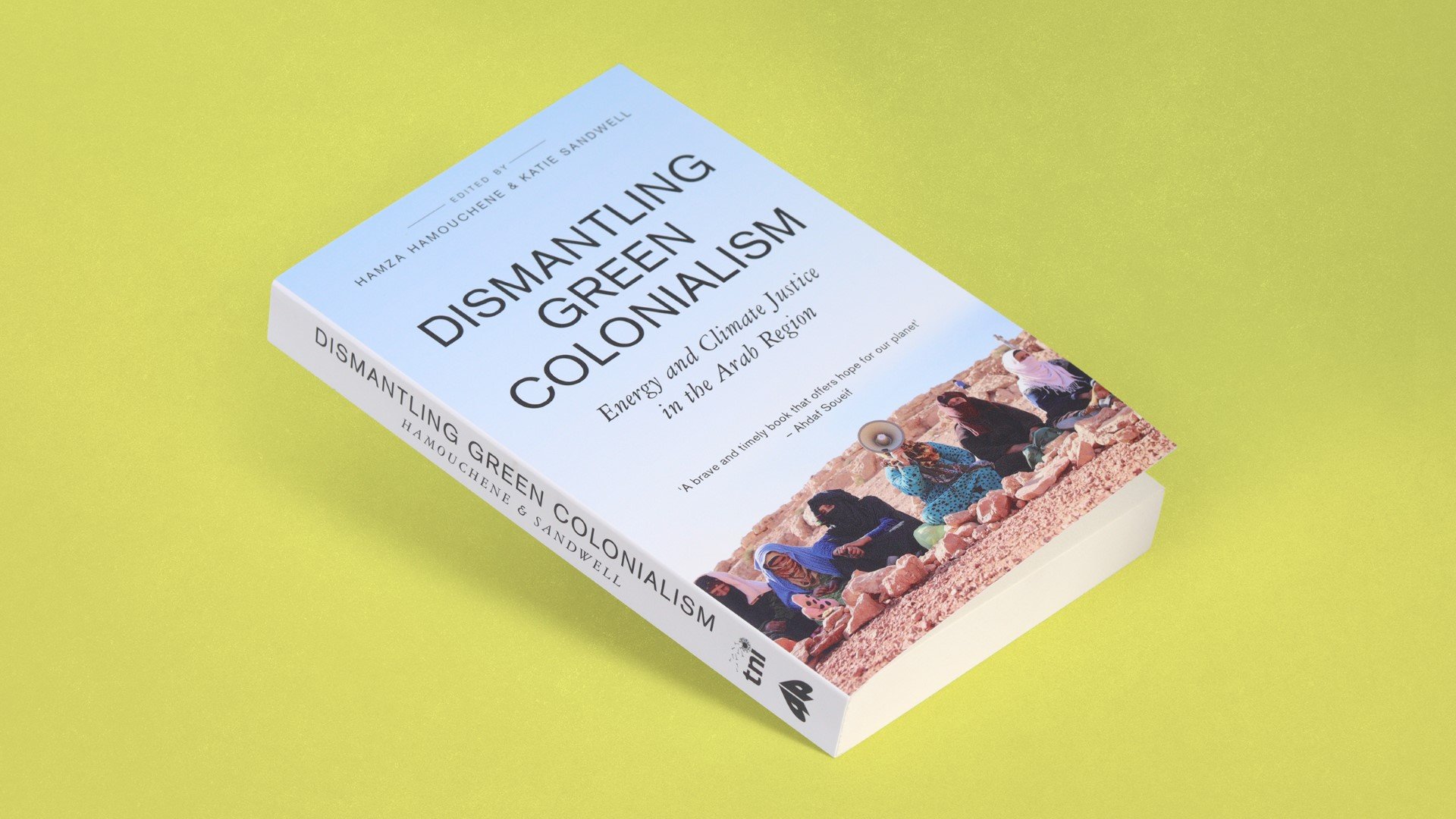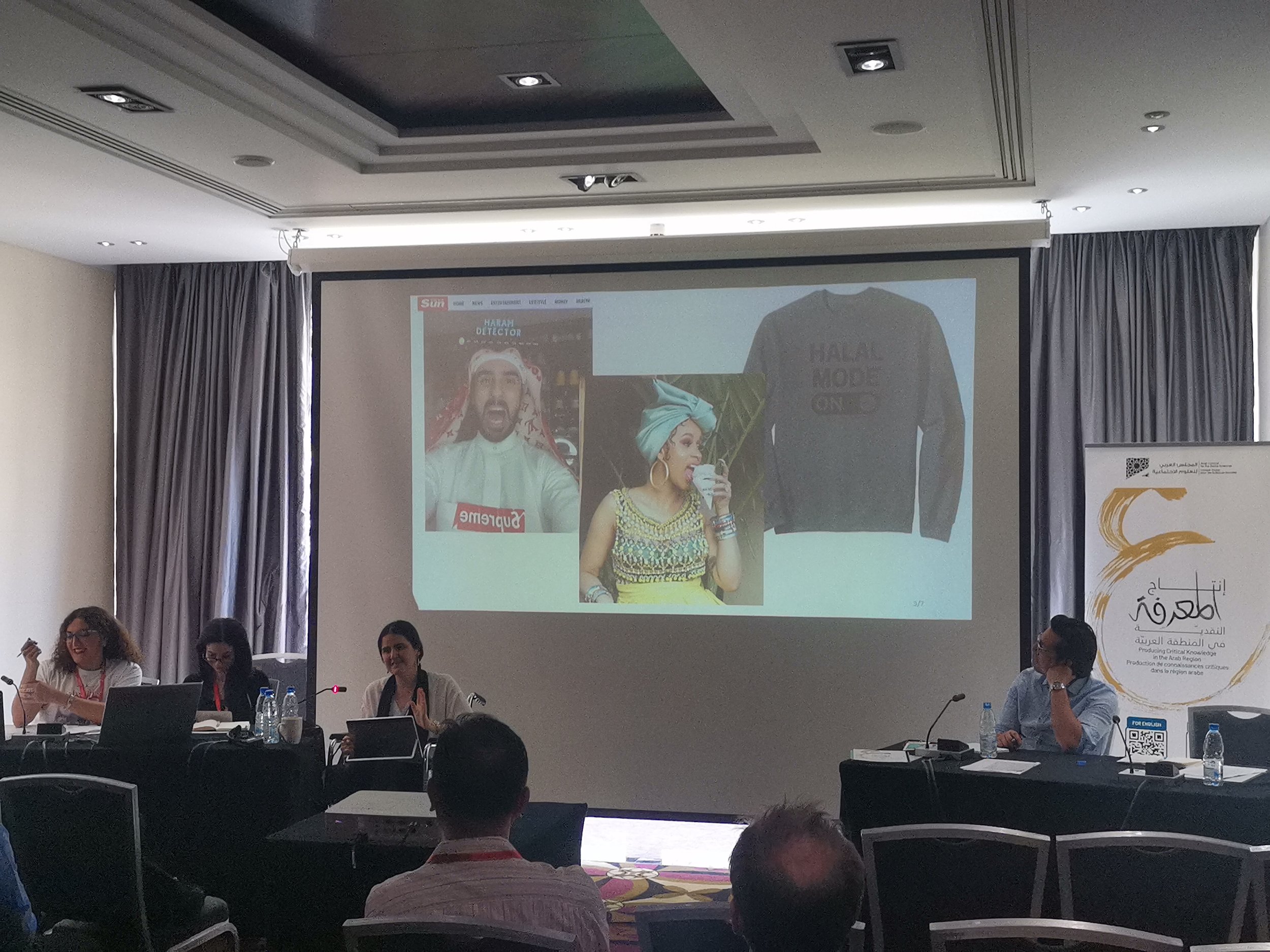Professor Adam Hanieh Delivers Lecture at the University of Cambridge
On 30 January 2024, Professor Adam Hanieh delivered a lecture titled “The ‘East-East’ Hydrocarbon Circuit: Rethinking Middle East Oil and the World Market” at the Department of Politics and International Studies (POLIS), University of Cambridge. Around forty students, academics, and visiting scholars from different faculties attended the lecture, which was followed by a reception.
Professor Adam Hanieh Delivers Lecture to Students at Tsinghua University, Beijing, China
On 26 October 2023, Professor Adam Hanieh delivered an inaugural lecture to a newly formed student association at Tsinghua University, Beijing, China – the Tsinghua University Student Association of China-MENA Friendship (THU-MENA).
Before and Beyond the Confucius Institute:An Epistemological Turn to Understanding China’s Soft Power in MENA
The Western international relations concept “soft power” has deeply penetrated official, academic, and public vocabulary of China’s presence in the MENA region in this century. The Confucius Institute (CI) has become the Leitmotif of scholarship on China’s soft power in cultural domain. However, the region has also witnessed the emergence of a range of non-CI language or cultural-cum-language training spaces.
Two wheels and two wings: Assembling Chinese industrial park-port projects in the Middle East
Recent research has explored the features of an emergent international development regime that embraces infrastructure-led development as a means of enhancing connectivity and global market integration. While numerous influential international institutions have been at the forefront of the global infrastructure drive, emerging economic actors such as China are becoming increasingly active as providers of infrastructure development assistance.
New Chapter in Upcoming Collection on Energy and Climate Justice in the Arab World
Building on his research as part of the 'Mapping Connections' project, Adam Hanieh has a new chapter in the upcoming volume, Dismantling Green Colonialism: Energy and Climate Justice in the Arab Region (Pluto Books/TNI, 2023), co-authored by Hamza Hamouchene and Katie Sandwell.
The Sixth Conference of the Arab Council for Social Sciences (ACSS) held in Beirut, Lebanon, 25 to 28 May 2023
Early career researchers from the Mapping Connections project presented their work at a panel convened as part of the Sixth Conference of the Arab Council for Social Sciences (ACSS) held in Beirut, Lebanon, 25 to 28 May 2023. ACSS is a partner of the Mapping Connections project, and their biannual conference brought together close to 400 researchers from the Arab region and the world, as well as the ACSS Board of Trustees, representatives of donor organizations, university presidents, deans, and faculty members in prominent universities around the region.
Beijing and Bazaars: Sino-Iranian Relations through Ethnographic Shadows
In an unassuming store deep in the heart of Tehran’s covered marketplace, or bazaar, I was chatting with an apprentice. Our conversation was focused on the growing role played by new kitchenware and glassware commercial hubs located outside the bazaar. The animated well-groomed man, who I assumed was in his early 20s, lacked experience, but was a willing interviewee. After a few minutes, however, he redirected our conversation away from my interest in the bazaar’s emerging wholesaling and retailing competitors to several bazaaris within the cavernous historic marketplace sourcing their wares from China.
Why Study China and Iraqi Kurdistan?
China is emerging as an important actor in the Middle East. The relationship is becoming more visible through goods, trade, infrastructure, diplomatic summits, and soft power. The literature on China and the Middle East is also expanding rapidly but is primarily focused on state-to-state or state-to-region (Middle East, MENA) relationships. Nevertheless, China’s relationship to the region is not limited to states or regions; in addition to these, China also cultivates and enhances its relationship with non-state actors, political parties, and civil societies.
China and the Gulf at COP27
The politics of COP27 ran along at least three separate tracks: First, there were the ministerial negotiations and meetings taking place in buildings with additional layers of security and all too frequently closed to the regular attendees. Second, there were the activists, NGO representatives and other state and international officials presenting on panels in the main part of the grounds and in the exhibition halls
Interview with calligrapher Mi Guangjiang
Haji Noor Deen Mi Guangjiang is an internationally renowned Arabic calligrapher. Born to a Hui Muslim family in 1964, he has been fond of Arabic calligraphy since a teenager, and received systematic and professional training in Egypt and Turkey. In 1997, Haji Noor Deen became the first Chinese Muslim to be awarded the Egyptian Certificate of Arabic Calligraphy and was admitted as a member of the Association of Egyptian Calligraphy
中国传统风格的阿拉伯书法 — 专访哈吉·努伦丁·米广江
1. 您在上世纪80年代开始学习阿拉伯书法。先是在中国,然后去到中东国家继续深造。您对阿拉伯书法的兴趣是如何开始的?
回民有个习惯。家里办红事时,比如结婚、搬新家,都喜欢在门上贴上阿拉伯文的经文。我们兄弟姊妹多。在我小的时候,大约7、8岁左右,家里总是有人结婚。每次哥哥们结婚的时候,我们都会把门刷黑,请阿訇写阿拉伯文经文,用红纸写上,然后贴在门框上。
Beirut workshop 14th - 15th January 2023. News update
Beirut workshop hosted by the University of Exeter and the Arab Council for the Social Sciences (ACSS)
A New Republic, A New Capital: Chinese Money and Egypt’s New Urban Agenda
The date was 9 March 2021, and the Egyptian president was proclaiming a ‘New Egypt’ – a new republic that would be manifested in a New Administrative Capital (NAC).
The Halal Exchange: Implications for Sino-Arab Cooperation
China’s global economic influence has had a profound impact on the Arab region, and in this blog I raise some questions around one understudied aspect of this influence: the halal trade.
The Shifting Sands of the New Silk Road: An Insight from Yiwu and its Arab Traders
I first visited Yiwu in 2017 after a Syrian businessman in Shanghai encouraged me to speak to those who, in his opinion, could give me an insight into the true nature of China-Middle East trade.
China’s Israel, Israel’s China.
I spent the spring of 2019 in China, teaching at New York University’s campus in Shanghai. On several occasions during that period I was told that many people in China viewed Jews positively, even if they’d never actually met one.
From gallons to gigabytes: China’s Digital Silk Road and the Arab World
While the strategic expansion into the Arab region by the Belt and Road Initiative (BRI), driven by China’s insatiable demand for oil and other natural and strategic resources, has received both scholarly and public attention, there is hardly any research on the growing activities of the BRI’s Digital Silk Road (DSR) sub-initiative, and how they play out in countries of the region.
Industrial cooperation in China’s Economic and Trade Cooperation Zones in Africa: A case of paradigm maintenance
Over the past two decades, China has become Africa’s most important economic partner, prompting considerable debate on the drivers and impacts of China’s relations in the region.
The Kuwait Fund for Arab Economic Development in China: Sovereign Wealth and International Aid.
In January 2022, the foreign ministers of Saudi Arabia, Kuwait, Oman and Bahrain arrived in China for a five-day visit with their Chinese counterpart Wang Yi. This collective visit, which also seemingly solidified what policy analysts have been referring to as ‘the Gulf’s eastward turn,’ signaled a potential loosening of American hegemony in the region.
Chinese Language Learning and the Arab World: Is There a ‘Mandarin Silk Road’?
Language is a wide-ranging subject. I would like to use this short blog to share my thoughts about why it is important to consider the Chinese language when we talk about 21st century Sino-Arab relations.




















